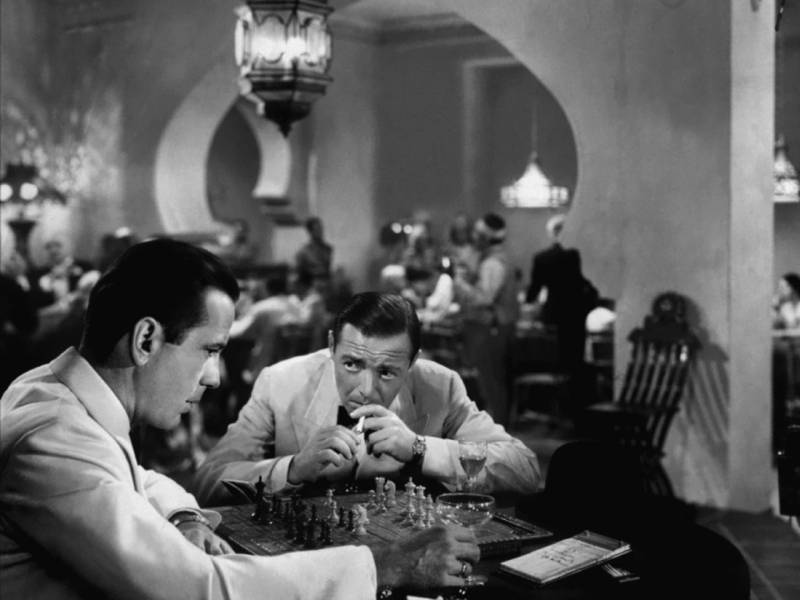“The Hollywood moguls, the boards in Washington, none of these people wanted the American public to think of World War II as a war for the Jews,” Leslie Epstein told Radio Diaries. But even if it softened the specifics, Casablanca still delivered a powerful political message to audiences.
“Casablanca is a propaganda film,” says Noah Isenberg, author of We’ll Always Have Casablanca. “It’s a propaganda film because the American public were not fully convinced of the moral imperative of fighting this war; and the message is, this is a fight worth fighting.”
The character arc of Rick Blaine, played by Bogart, is a clear metaphor for the United States and foreign policy. Rick begins the film as an isolationist, telling Ilsa: “I’m not fighting for anything anymore, except myself. I’m the only cause I’m interested in.”
But as the story progresses, cracks appear in that façade. In the scene with Dantine, for example, Rick’s aid of young refugees is a sign he is not as cold-hearted as he leads people to believe.
Later in the famous scene of the singing of La Marseillaise, Rick gives permission for the band to play the song of the resistance. As the refugees in the bar belt out their anthem, the film cuts to a closeup of the young French actress Madeleine Lebeau, tears streaming down her face.
Lebeau had fled Paris with her husband, Marcel Dalio, just two years prior. “They’re not tears of glycerin shed by an actress,” says Epstein. “The tears in her eyes are real.”
During World War II, Hollywood provided safe harbor and employment for European emigres. After the war, a few of the refugee actors in Casablanca were successful playing character roles. But for most, the work dried up as Hollywood turned its focus back to life in America. Some would be targeted by the House Committee on Un-American Activities. Others returned to post-war Europe.

9(MDAxOTAwOTE4MDEyMTkxMDAzNjczZDljZA004))

